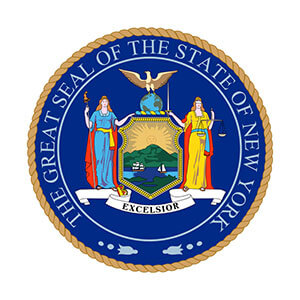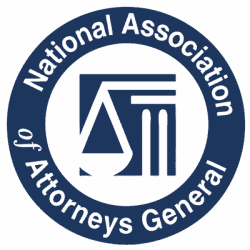In January 2012, Governor Cuomo issued Executive Order #38 (“EO #38”) (9 NYCRR 8.38) which limited compensation and administrative expenses at state-funded non-profit organizations. Undoubtedly, this was the Governor’s knee-jerk reaction to high profile revelations of what appeared to be large compensation packages and extraordinary benefits afforded to the two brothers who ran the Young Adult Institute, a predominately state-funded nonprofit that provides support services to individuals with mental and physical disabilities.
As with most reactionary legislation and regulations, this ill-conceived proclamation fails to fully comprehend the collateral impact as it was guided by political expediency and the myth that high overhead cost equates with poor performance.
The Executive Order sets limits on administrative expenses and executive compensation to any entity regulated by a list of thirteen specified state agencies if those entities receive more than $500,000 in annual state support and at least 30% of their annual funding from the State (or from New York City or other local jurisdictions through State funded programs). EO #38 became effective as of July 1st, 2013. (10 NYCCR Part 1002)
The regulations require that “covered entities” shall not use State funds to pay Executive Compensation (10 NYCCR Part 1002.5) in amounts greater than $199,000 a year unless (i) the entity obtains a waiver from the state; (ii) the compensation is paid from other sources; or (iii) the compensation is for direct services, and
- the compensation, regardless of its source, is not greater than the 75th percentile of compensation paid to comparable executives as established by state recognized compensation surveys; and
- the Executive compensation is approved by the entity’s board of directors or compensation committee after reviewing the comparability data and surveys.
EO #38 also limits Administrative Expenses (10 NYCCR 1002.2a), calculated as a percentage of total operating expenses, to no more than 15% of the funds provided by the State or from State authorized funds. (This limit started at 25% in 2013 and was reduced to 15% in 2015.)
To complicate matters, the covered entity may obtain a waiver of the compensation and administrative expense limits if the entity can demonstrate “good cause” by showing that the availability and quality of the program services will be negatively impacted due to the nature, size, and complexity of the programs funded. If the covered entity fails to comply with these rules or obtain the appropriate waivers from one of the thirteen State Agencies (each of which appear to have their own process for obtaining a waiver), the entity is subject to suspension, modification or termination of its State funded service contracts and/or its Office of Mental Health (OMH) or Department of Health (DOH) license. Non-compliance can potentially be cured through a corrective action plan approved by the State. The entity can also file an administrative appeal of the sanctions.
The Conflict:
From the start, the proclamation has been controversial with state funded nonprofits and exceptionally difficult to administer. In response to an outcry from major health care providers a waiver system was enacted. In addition, further changes to the implementing regulations stirred additional controversy (10 NYCRR sub-part 69-4). The Department of Health (DOH) adopted amendments to address potential conflicts of interest involving early intervention program evaluators. This change in the conflict of interest rule in conjunction with the burden of the other limitations appears to have stimulated covered providers to challenge EO # 38 in court.
Tale of Two Cases:
Case 1 In an April 2014 decision, the Nassau County Supreme Court agreed with the challenging agency’s theory alleged in its suit (Agencies for Children’s Therapy Services, Inc. v. NYS Department of Health et al), which challenged the validity of the Governor’s action as a violation of the separation of powers doctrine. The suit claimed that the state legislature, not the Governor, had the power to enact rules governing state funded executive compensation, administrative expense limitations and conflict of interest rules at private facilities and that the legislature in its 2012 budget evinced no legislative intent to do so.
The Court held that the DOH “usurped the role of the legislature in making public policy assessments” and that DOH lacks “the authority to determine how much a for-profit entity may pay executives and how much to expend on administrative expenses.”
Case 2 In a very similar case brought in the Suffolk County Supreme Court (Concerned Home Care Providers, Inc. v. NYS Department of Health, et al.) the Court ruled that EO #38 and its implementing regulations were a constitutional exercise of Executive power. This decision was completely contrary to the holding in Agencies for Children’s Therapy Services, Inc. Suffolk County Supreme Court Justice Pines concluded that the regulations “are well within the legislatively mandated policy and “that inherent in such authority is the power to determine the terms of such contract so long as they do not deviate from other legal authority.”
The Appeal:
Emboldened by the decision of Judge Pines in Concerned Home Care Providers, the DOH appealed the adverse decision in Agencies for Children’s Therapy Services. On December 30th, 2015 the Appellate Division 2nd Department (New York’s intermediate Appeals Court) issued a surprising decision. It reversed the holding in Agencies for Children’s Therapy Services and found that the DOH had not violated the standards enunciated in the precedent setting Court of Appeals decision Boreali v. Axelrod.
The Appellate Court ruled that the DOH is statutorily required to award service contract “on the basis of best value . . . in a manner that optimizes quality, cost and efficiency.” The Court went on to state that “ the administrative cost and executive compensation limits contained in the use-of-funds rule are not inconsistent with the above statutory provisions or the underlying purpose of obtaining high quality services with limited available funds.” In what appears to be a stretch by the Court, it went on to determine that high quality services are made available “by ensuring that the DOH awards service contracts to agencies that will use most of the tax dollars they receive directly on the provisions of services rather than upon administrative overhead and executive compensation.”
Clearly, the Court bought into the often challenged and widely discredited theory that lower overhead and executive compensation expenses ensure optimized quality, lower costs and better efficiency. From where and how the Court formed this notion is not clear. —I suspect they simply believe it is common knowledge. Unfortunately for New York service agencies and the philanthropic sector at large, there is nothing common or empirical about this equivalence. This decision illustrates the uphill battle that the charitable sector faces in convincing the public and our public servants that broad restrictions on the ability of charities to use their funds to appropriately scale and attract much needed talent is counter-productive and ultimately handicaps service providers’ ability to impact and solve difficult social problems.
The New York State Court of Appeals (New York’s top Appellate Court) has issued a stay of the decision in the Agencies for Children’s Services decision pending the outcome of its decision on the appeal of the lower Court’s decision. We shall see if these justices fall prey to the same misguided notion of charitable efficiency and impact which guided the decision of the lower Court.
















